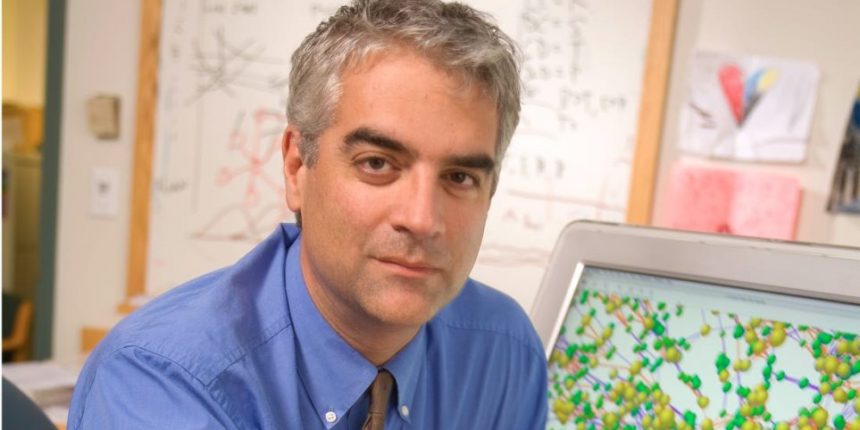Ο Έλληνας καθηγητής αναφέρει ότι, αν τα σχολεία κλείσουν πριν εμφανιστεί ο ιός σ’ αυτά, τότε οι πιθανότητες να εξαπλωθεί μειώνονται κατά 26% και η εξάπλωσή του καθυστερεί 16 ημέρες
Τα μέτρα πρόσληψης της ιταλικής κυβέρνησης κατά του κορωνοϊού σχολίασε ο Έλληνας καθηγητής του Yale Νικόλας Χρηστάκης.
Ο κ. Χρηστάκης ανέφερε ότι καλά έκανε η ιταλική κυβέρνηση και έκλεισε τα σχολεία τώρα που είναι ακόμα νωρίς, καθώς δεν πρέπει να περιμένει να εξαπλωθεί ο ιός και στους πανεπιστημιακούς και σχολικούς χώρους.
Συγκεκριμένα ο Έλληνας καθηγητής αναφέρει ότι αν τα σχολεία κλείσουν πριν εμφανιστεί ο ιός σ’ αυτά, τότε οι πιθανότητες να εξαπλωθεί μειώνονται κατά 26% και η εξάπλωσή του καθυστερεί 16 ημέρες.
Δείτε αναλυτικά τα tweets:
 Nicholas A. Christakis@NAChristakis
Nicholas A. Christakis@NAChristakisBut school closures and NPI must be applied *early*. Compare St. Louis and Pittsburg in the 1918 influenza pandemic. St. Louis closed its schools *before* local cases had doubled, and for longer, than Pittsburg. It had many fewer excess deaths. #COVID19 #schoolclosure 6/
Detailed modeling of NPI in 2006 @nature paper shows that if school closure is *reactive* (waiting for first case and then closing 100% of schools), with moderately transmissible virus, cumulative cases decline 26% & epidemic peak is delayed 16 days. https://www.nature.com/articles/nature04795 … 7/
Strategies for mitigating an influenza pandemic
Numerical models of the epidemiology of a potential flu pandemic show there is no single magic bullet which can control the outbreak, but that a combination of approaches could reduce transmission…
nature.com
 Nicholas A. Christakis@NAChristakis
Nicholas A. Christakis@NAChristakisDetailed modeling of NPI in 2006 @nature paper shows that if school closure is *reactive* (waiting for first case and then closing 100% of schools), with moderately transmissible virus, cumulative cases decline 26% & epidemic peak is delayed 16 days. https://www.nature.com/articles/nature04795 … 7/
Strategies for mitigating an influenza pandemic
Numerical models of the epidemiology of a potential flu pandemic show there is no single magic bullet which can control the outbreak, but that a combination of approaches could reduce transmission…
nature.com
So reactive school closure, while rational & helpful, is not enough. In my view, schools should be closed *before* first case in a school, when cases appear in the community or in nearby areas. This is not without costs. But waiting reduces the benefits of #schoolclosure. 8/
 Nicholas A. Christakis@NAChristakis
Nicholas A. Christakis@NAChristakisAn inventive 2007 study by @HowardMarkel et al in @JAMA_current examined impact of school closures and other NPI, and their precise timing, in the 1918 influenza pandemic, looking at 43 major USA cities. https://jamanetwork.com/journals/jama/fullarticle/208354 … 3/
Nonpharmaceutical Interventions Implemented by US Cities During the 1918-1919 Influenza Pandemic
Context A critical question in pandemic influenza planning is the role nonpharmaceutical interventions might play in delaying the temporal effects of a pandemic, reducing the overall and peak attack…
jamanetwork.com
The *earlier* that schools were closed (ideally even in *advance* of outbreaks) the lower the number of excess deaths in 43 US cities during the 1918 Influenza pandemic. #COVID19 #schoolclosure 4/
 Trikala Day Καθημερινή Ηλεκτρονική Εφημερίδα των Τρικάλων
Trikala Day Καθημερινή Ηλεκτρονική Εφημερίδα των Τρικάλων












